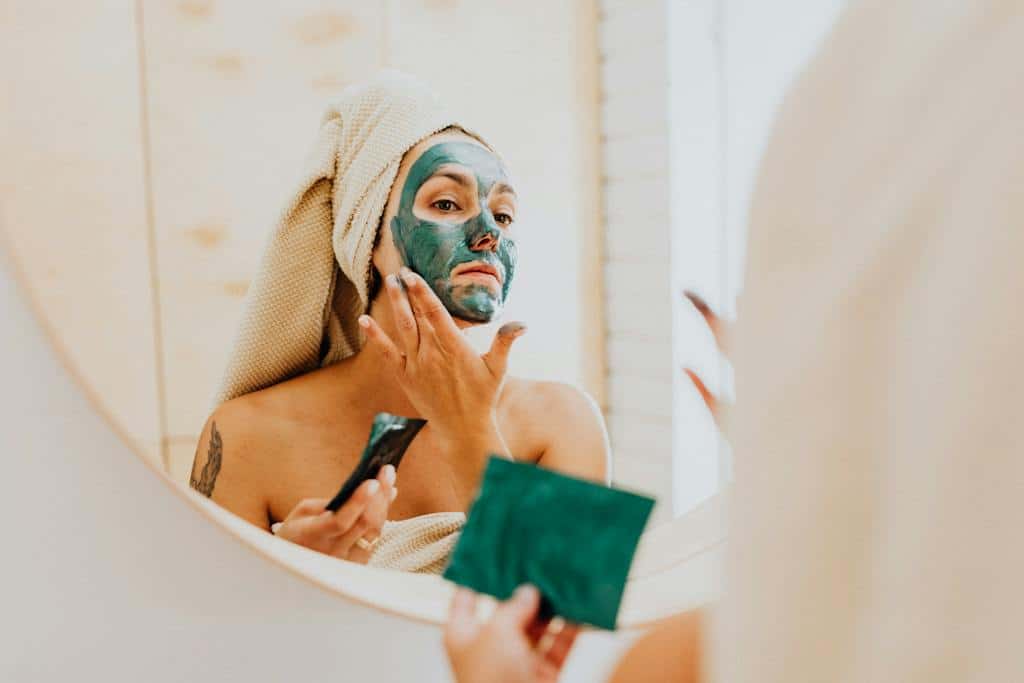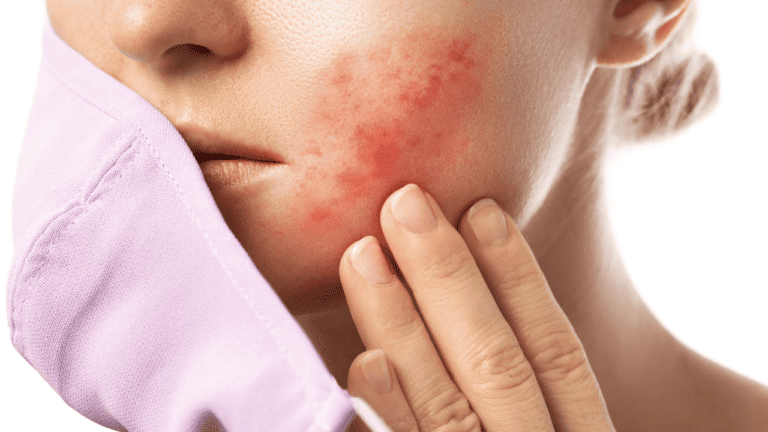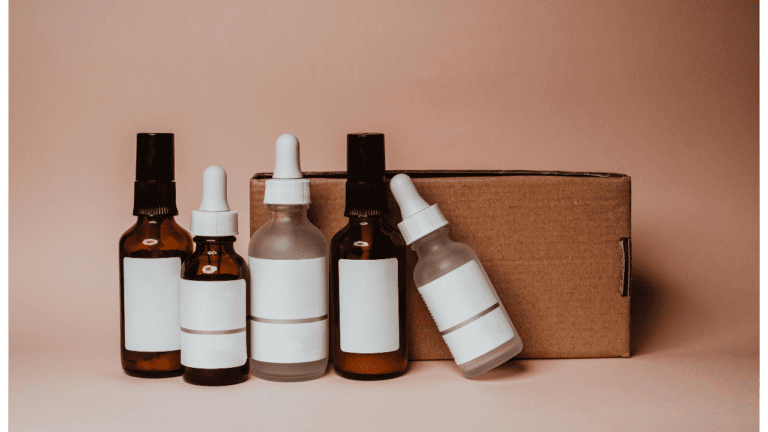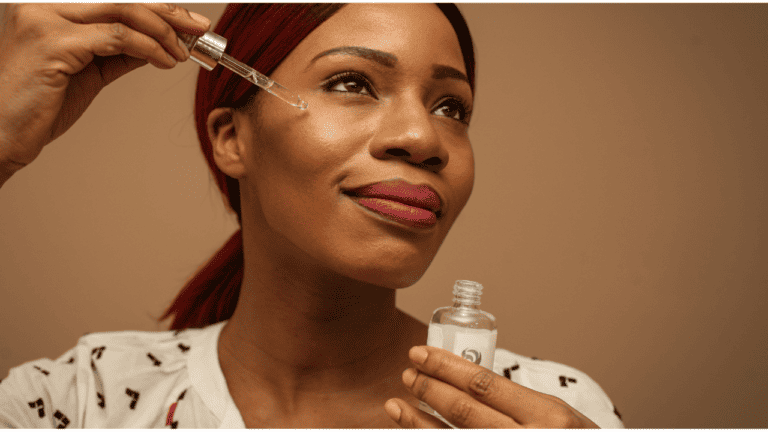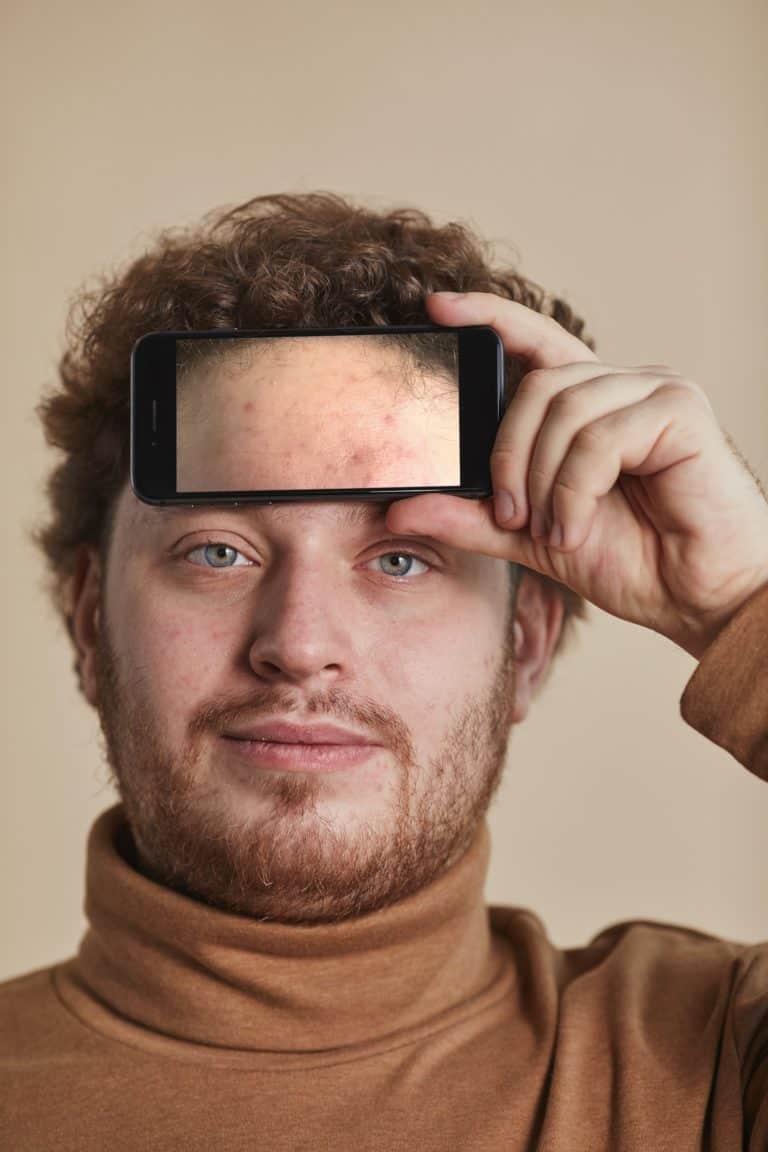Acne scars look worse after the shower because hot water may cause skin to become red and inflamed making scars more noticeable. Additionally, the steam from the shower can open up your pores, which can make your scars more visible.
Many people have noticed that their acne scars look worse after taking a shower. This can be confusing and frustrating, especially if you are trying to improve the appearance of your skin.
Be rest assured, these effects are usually temporary however there are ways to combat and prevent this from happening.
Key takeaways
- Acne scars can be difficult to treat and can take a long time to fade away.
- Hot water and steam from the shower can cause your skin to become red and inflamed, which can make your scars more noticeable.
- There are several preventive measures and treatments that can help improve the appearance of acne scars.
Reasons Why Acne Scars Look Worse After Showering
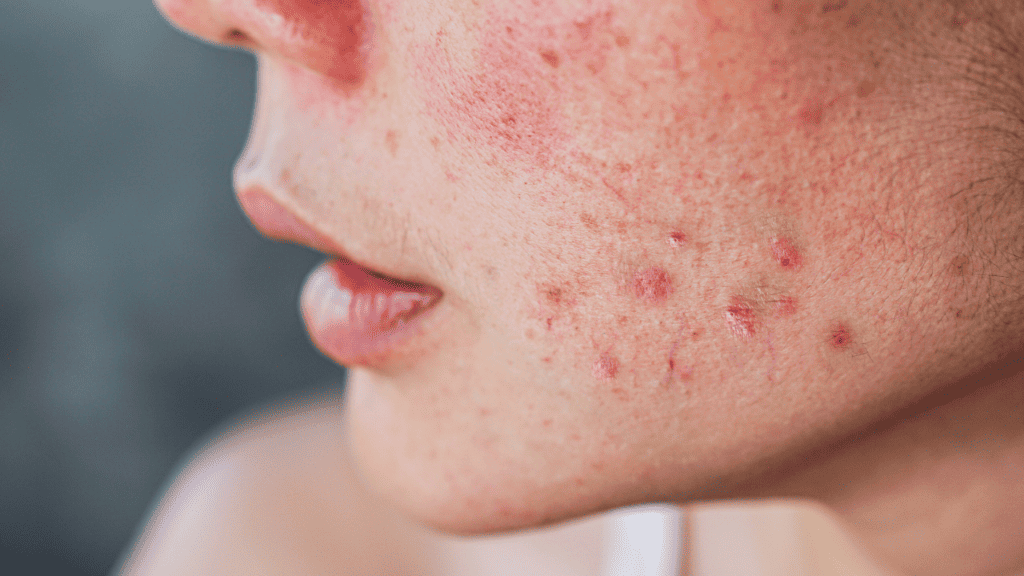
1. Increased Skin Redness
The warmth and steam of a hot shower can cause the blood vessels in your skin to dilate, leading to increased blood flow. This process, known as vasodilation, can temporarily intensify the redness of the skin, making acne scars more pronounced. It’s particularly noticeable in inflammatory scars, which are already redder due to their nature.
The contrast between the surrounding skin and the scar tissue becomes more distinct, highlighting the scars. However, it’s important to note that this is a temporary effect, and the redness usually subsides shortly after the skin cools down.
2. Swelling and Inflammation
Another factor contributing to the more prominent appearance of acne scars post-shower is mild swelling. The heat from the shower can cause the skin to slightly puff up. This swelling can stretch the skin, making indented scars, like boxcar or rolling scars, appear more noticeable. While this might seem alarming, it’s a transient effect, and the skin typically returns to its normal state within a short period after the shower.
Similarly, acne scars might look worse for a few days after the microneedling skin treatment. It involves creating tiny punctures in the skin using needles which can cause temporary inflammation and swelling.
3. Hydration Effect
When you shower, your skin absorbs water, becoming more hydrated. This hydration can cause the skin to become taut, which might paradoxically make certain scars look more pronounced. Think of it like a smooth canvas where even minor imperfections become visible. Especially for atrophic scars, which are indentations in the skin, this tautness can make the dips and valleys of the scar tissue more apparent.
4. Lighting in the Bathroom
It’s also worth considering the role of bathroom lighting. Often, bathrooms have bright, direct light that can cast shadows and highlight imperfections in the skin that you might not notice in other lighting conditions. This effect can exaggerate the appearance of acne scars, making them seem more severe than they are in natural light. That’s also why often times your acne scars might look worse at night thanks to the lighting effect.
Temporary vs. Permanent Changes
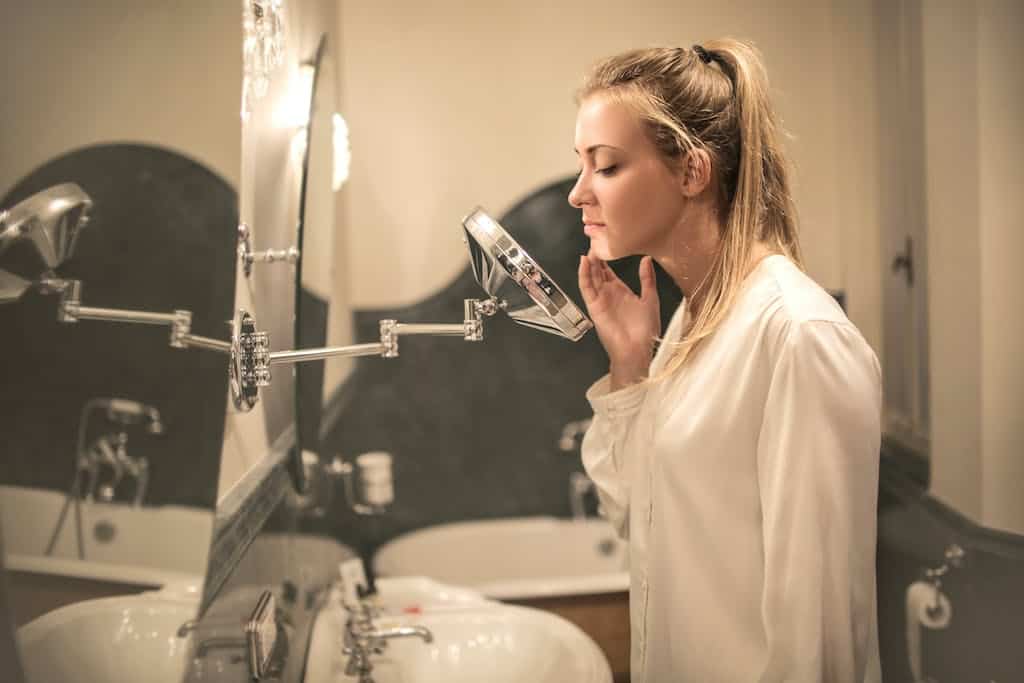
It’s crucial to understand that the changes in the appearance of acne scars after showering are usually temporary. The redness, swelling, and tautness of the skin typically diminish as your skin returns to its normal temperature and hydration levels. If you notice that your scars seem more pronounced after a shower, give it some time. Chances are, they will revert to their usual appearance.
However, if you observe that your acne scars are persistently worsening or if new scars are forming, it may be time to consult a dermatologist. Persistent changes in your skin’s texture, color, or the appearance of scars can be a sign that your acne or scars need professional attention. Dermatologists can provide treatments and advice tailored to your specific skin type and concerns.
Effects of Showering on Acne Scars
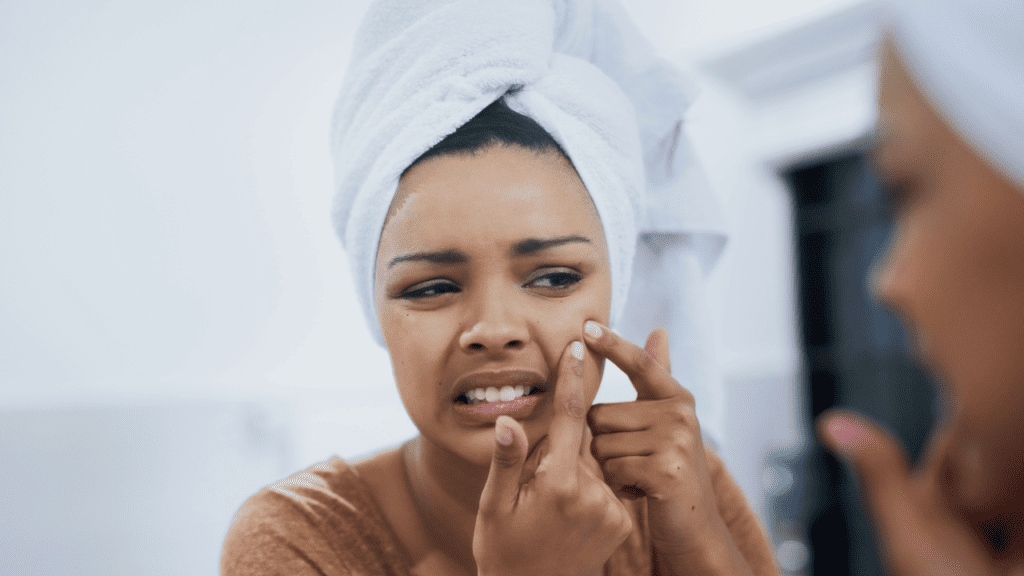
Showering is an essential part of daily hygiene, but it can sometimes worsen the appearance of acne scars. This section will explore the two primary ways that showering impacts acne scars: water temperature and shower products.
Role of Water Temperature
Water temperature is a crucial factor in how showering affects acne scars. Hot water can irritate acne-prone skin, and dry the skin as it strips the skin of its natural oils.
When it comes to acne scars, hot water can cause blood vessels to dilate, making scars appear redder and more noticeable. On the other hand, cold water can cause vasoconstriction, which can make scars appear less visible.
To avoid exacerbating acne scars, individuals with acne-prone skin should avoid using hot water when showering. Instead, they should opt for lukewarm water to prevent further irritation.
Impact of Shower Products
The type of shower products used can also impact the appearance of acne scars. Harsh soaps and exfoliants can cause further irritation and damage to the skin, making acne scars look worse. On the other hand, gentle cleansers and moisturizers can help soothe and heal the skin, reducing the appearance of acne scars.
When choosing shower products, individuals with acne-prone skin should look for products that are labeled “non-comedogenic” and “gentle.” These products are less likely to cause irritation and clog pores, which can lead to more acne and scarring.
In conclusion, showering can impact the appearance of acne scars. By using lukewarm water and gentle shower products, individuals with acne-prone skin can help prevent further scarring and reduce the appearance of existing acne scars.
Tips for Reducing the Appearance of Acne Scars Post-Shower
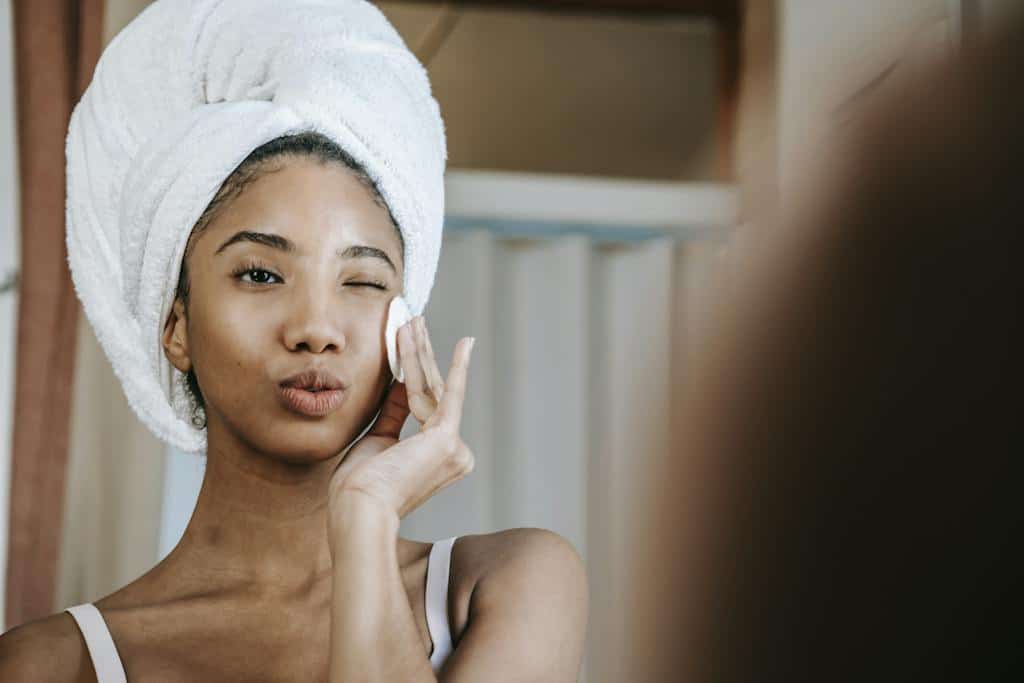
Gentle Skin Care Routines
Adopt a gentle skin care routine. Use mild, non-abrasive cleansers and avoid scrubbing your face harshly. Pat your skin dry instead of rubbing it, as this can irritate acne scars and make them appear redder.
Adjust Shower Temperature
Consider lowering the temperature of your showers and try to reduce time under hot showers or hot baths. Cooler water can reduce the intensity of vasodilation and swelling, leading to less pronounced scarring post-shower.
Hydration and Moisturizing
After showering, apply a suitable moisturizer to maintain your skin’s hydration without making it too oily. Moisturizers with hyaluronic acid or glycerin are particularly effective in keeping the skin hydrated without aggravating acne.
Concealing Scars
For immediate cosmetic concerns, consider using makeup or a concealer to cover scars. Choose non-comedogenic products that won’t clog pores or exacerbate acne.
Conclusion
Overall, preventing acne scars from worsening after a shower requires a combination of daily skin care and professional treatments. By following a consistent skin care routine and working with a dermatologist to develop a personalized treatment plan, people with acne-prone skin can reduce the appearance of acne scars and improve the overall health and appearance of their skin.
Frequently Asked Questions
What factors contribute to the increased visibility of acne scars post-shower?
Acne scars may appear more visible after a shower due to the increased blood flow to the skin’s surface, which can cause redness and inflammation.
Additionally, the steam and heat from the shower can cause the skin to expand, which can make the scars appear more prominent.
How does the temperature of water during a shower affect acne and scarring?
The temperature of water during a shower can affect acne and scarring. Hot water can strip the skin of its natural oils, which can lead to dryness and irritation.
This can exacerbate acne and make scars appear more prominent. On the other hand, cold water can help reduce inflammation and redness, which can make scars appear less visible.
Can certain skincare routines exacerbate the appearance of acne scars?
Yes, certain skincare routines can exacerbate the appearance of acne scars. Using harsh exfoliants or scrubs can irritate the skin and make scars appear more prominent.
Additionally, using products that contain alcohol or fragrances can dry out the skin and make it more susceptible to scarring. It is important to choose skincare products that are gentle and non-irritating, and to avoid picking or squeezing acne lesions, which can lead to scarring.
